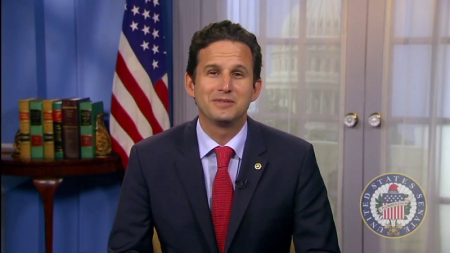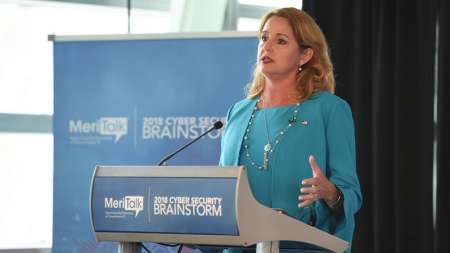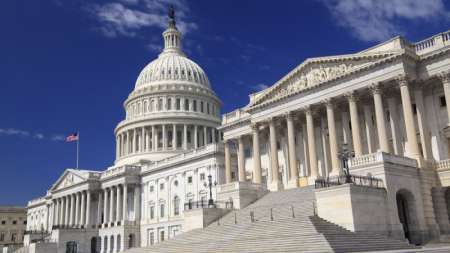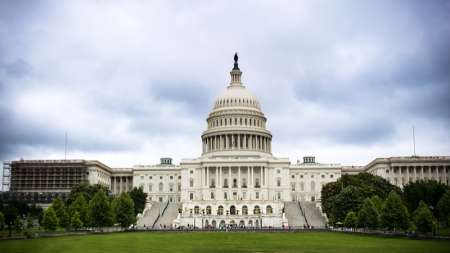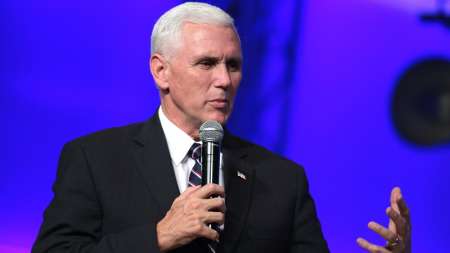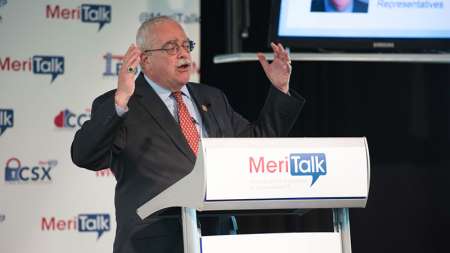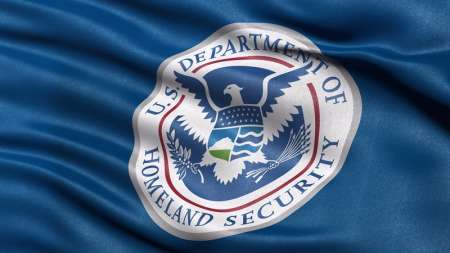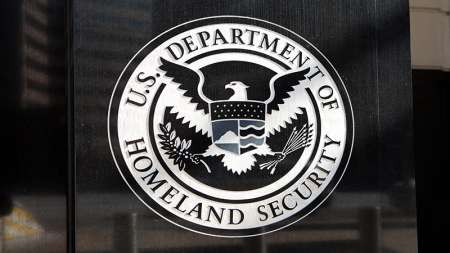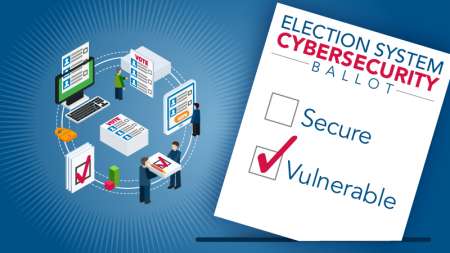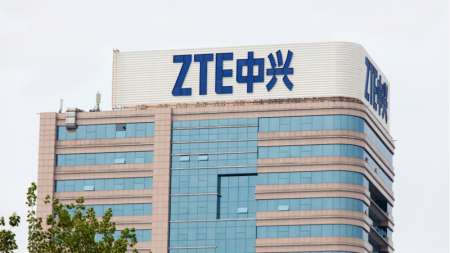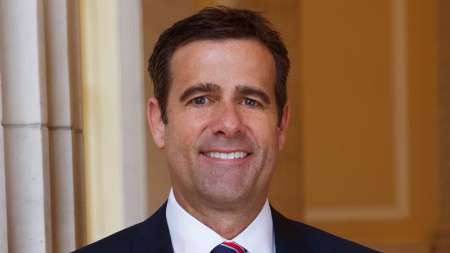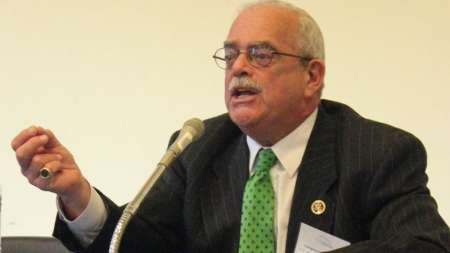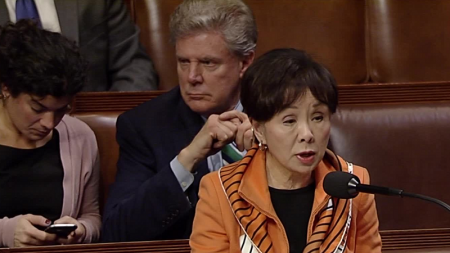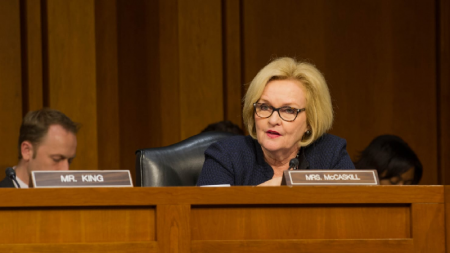The NIST Small Business Cybersecurity Act, S. 770, is heading to President Trump’s desk where he is expected to sign it into law soon. […]
MeriTalk today announced the winners of its inaugural FITARA Awards program, recognizing six Federal agencies who have made tremendous strides in modernizing their IT environments and one congressional leader who has worked tirelessly to promote the reform of IT acquisitions and adoption of cyber best practices. […]
Federal CIO Suzette Kent, chair of the Technology Modernization Fund (TMF) board, said today she recognizes the imperative to share data with Congress on TMF progress, as the opportunity to secure […]
Senate FY2019 funding for the Technology Modernization Fund (TMF) remains stuck on zero following the Senate’s approval earlier today on a 92-6 vote of a “minibus” appropriations bill that wraps together four separate spending bills including one to fund financial services and general government (FSGG) budgets. […]
By a vote of 87-10, the Senate today approved the FY2019 National Defense Authorization Act (NDAA) and the corresponding conference report that ironed out differences between House and Senate versions of the bill. The legislation to fund the Defense Department (DoD) and U.S. armed forces now moves to President Trump’s desk for his signature. […]
Sens. Lindsey Graham, R-S.C., Sheldon Whitehouse, D-R.I., and Richard Blumenthal, D-Conn., introduced two pieces of legislation on Tuesday designed to improve cybercrime prevention and strengthen U.S. election infrastructure. […]
Vice President Mike Pence, speaking at the Department of Homeland Security National Cybersecurity Summit today, called upon Congress to pass long-delayed legislation that would officially create the Cybersecurity and Infrastructure Security Agency (CISA) under DHS. […]
The House on Thursday voted 359-54 to approve the National Defense Authorization Act (NDAA) for FY 2019 (HR 5515) and an accompanying conference report produced earlier this month that irons out differences between House and Senate versions of the bill. […]
Welcome to MeriTalk News Briefs, where we bring you all the day’s action that didn’t quite make the headlines. No need to shout about ‘em, but we do feel that they merit talk. […]
Rep. Gerry Connolly, D-Va., said today that he introduced legislation – the Federal Risk and Authorization Management Program (FedRAMP) Reform Act – which would codify the FedRAMP program in Federal law and address what the congressman said are shortcomings of the program, including the slow pace of implementing standardized practices and realizing efficiencies in the certification process. […]
The White House called on the Senate to appropriate FY2019 funding for the Technology Modernization Fund (TMF), although it did not suggest a specific funding level in a statement of administration policy issued by the Office of Management and Budget on Tuesday. […]
The House Homeland Security Committee on Tuesday approved the Securing the Homeland Security Supply Chain Act (HR 6430), which would authorize the Homeland Security Secretary to take a variety of actions to curb supply chain risk including actions to exclude certain contractors in order to address “urgent national security interest.” […]
Congress, in its conference report for the National Defense Authorization Act for FY 2019 released earlier this week, is demanding more transparency from the Pentagon regarding the agency’s Joint Enterprise Defense Infrastructure (JEDI) cloud contract. […]
Welcome to MeriTalk News Briefs, where we bring you all the day’s action that didn’t quite make the headlines. No need to shout about ‘em, but we do feel that they merit talk. […]
The House Homeland Security Committee today voted to recommend two bills, the Advancing Cybersecurity Diagnostics and Mitigation Act and the Department of Homeland Security Chief Data Officer Authorization Act, aimed at strengthening and solidifying IT operations of the Department of Homeland Security (DHS) and to guard against evolving cybersecurity threats. […]
After the National Defense Authorization Act (NDAA) for FY 2019 cleared a major hurdle late yesterday with the release of a conference report that reconciles differences between House and Senate versions of the bills, techies across the Federal government are finding that IT modernization and innovation amendments for the Pentagon fared well in the legislation. […]
The National Defense Authorization Act (NDAA) for FY 2019 took a big step toward passage with the release of the conference report late yesterday that unifies House and Senate NDAA legislation and places in sharp focus concerns about growing cyber and electronic warfare threats and ways that the United States should address them. […]
The House today approved by voice vote the ACCESS BROADBAND Act (HR 3994), which would direct the Department of Commerce (DoC) to establish an Office of Internet Connectivity and Growth within the National Telecommunications and Information Administration. […]
Support for S. 2593, the Secure Elections Act of 2018, is growing in the Senate as four more legislators signed on as cosponsors late last week. […]
House Democrats led by Democratic Whip Steny Hoyer, D-Md., on Thursday introduced a suite of bills aimed at countering Russian interference in American elections, just moments after House Republicans voted down an amendment to provide $380 million in grants to improve state election security. […]
As the National Defense Authorization Act (NDAA) for FY2019 makes its way through the House-Senate conference process, Senate Republicans today agreed to drop their ban on China-based communications equipment maker ZTE in favor of the House’s more lenient version of that measure. […]
Rep. John Ratcliffe, R-Texas, introduced legislation today to codify into law the Department of Homeland Security’s Continuous Diagnostics and Mitigation (CDM) Program, in order “to advance and modernize” the program and ensure procedural policies for it. […]
The House Oversight and Government Reform Committee (OGR) on Tuesday approved two bills that would put procedures in place to swiftly terminate underperforming Federal employees, adding legislative fuel to the fire burning over Federal workforce rights further stoked by President Trump’s recent executive orders. […]
During today’s House Energy and Commerce Committee Subcommittee on Digital Commerce and Consumer Protection hearing to discuss oversight of the Federal Trade Commission, Rep. Doris Matsui, D-Calif., said she was introducing legislation calling for a common definition of blockchain. […]
The House Oversight and Government Reform Committee (OGR) on Tuesday approved by voice vote a bill which would allow Federal agency heads to limit access to certain websites or deploy cybersecurity measures if they feel that it is necessary to secure their IT systems, but not before strong vocal dissent about the scope of the legislation. […]
Members of the House Energy and Commerce’s Committee’s Communications and Technology Subcommittee expressed broad agreement today that the Federal government needs to do more to promote the availability of broadband service in underserved and unserved areas of the United States, but appeared to signal little in the way of any unified sentiment to coalesce around any of several existing bills that aim for that goal. […]
Welcome to MeriTalk News Briefs, where we bring you all the day’s action that didn’t quite make the headlines. No need to shout about ‘em, but we do feel that they merit talk. […]
The House Energy and Commerce Committee today approved by voice vote a measure that would direct Federal agencies to study Internet of Things (IoT) technologies and whether to regulate them, along with two others aimed at spurring further rollout of broadband services in mostly rural areas of the United States. […]
Welcome to MeriTalk News Briefs, where we bring you all the day’s action that didn’t quite make the headlines. No need to shout about ‘em, but we do feel that they merit talk. […]
Sens. James Lankford, R-Okla., and Claire McCaskill, D-Mo., today introduced legislation that would create a Federal Acquisition Security Council to oversee creation of a government-wide strategy to address supply IT chain security and mitigate supply chain security threats from IT equipment and service purchases. […]

